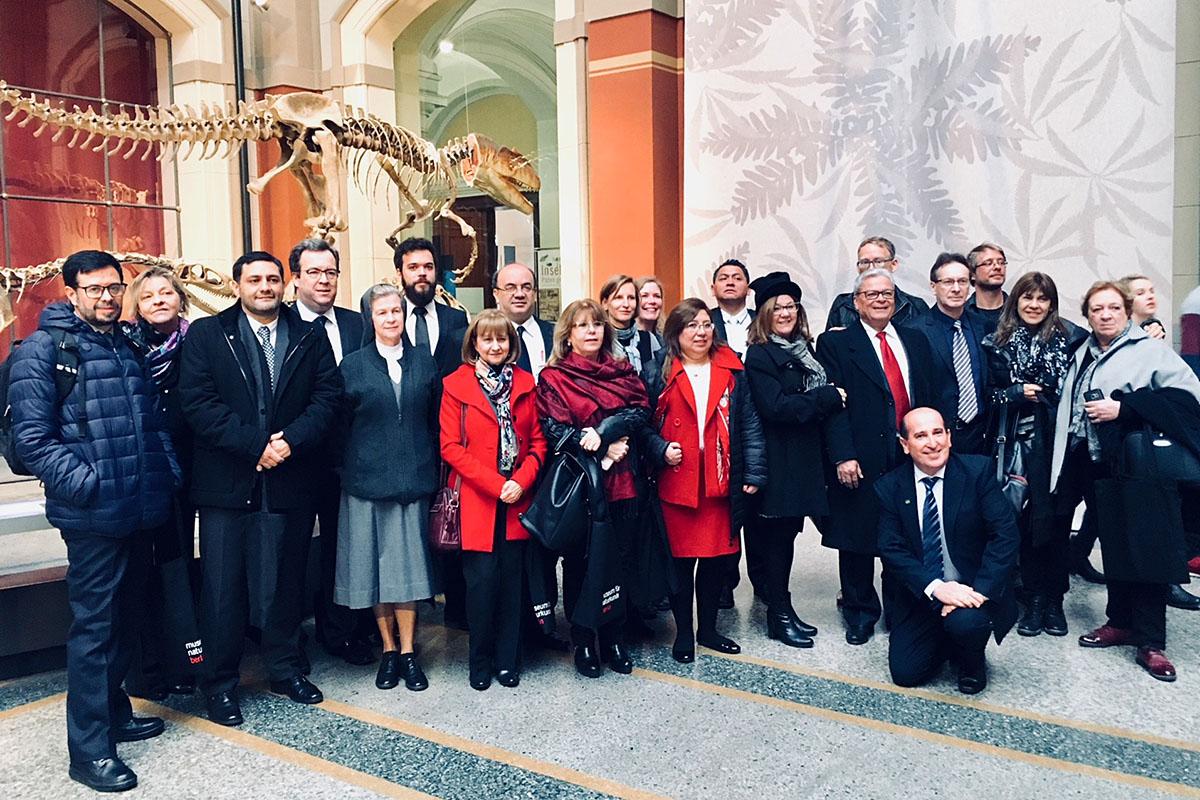Headmasters and headmistresses from Argentina, Peru, Colombia, Ecuador, Bolivia and Brazil, as well as Argentinian civil servants came to the Museum für Naturkunde Berlin in mid-November to get to know the education programmes and research projects run by the Education Department at the Museum für Naturkunde. The visit from South America marked the beginning of an even closer collaboration with the Goethe Institutes and schools in South American countries.
During their tour organised by the Goethe Institute, which took them to schools and universities in Heidelberg and Berlin, the fifteen guests from South America learned about successful school concepts, current teaching approaches in foreign languages and international exchange programmes. They expected the visit to the Museum to give them new inspiration for out-of-school education, and they wanted to find out how collaboration between the Museum and schools works.
The visitors from South America were impressed by the varied and interdisciplinary education programme that was presented to them by Astrid Faber, Head of the Education Department and her colleague, Dr Alexandra Moormann. Guests from Brazil in particular were intrigued by the way the Museum für Naturkunde Berlin manages to raise ecological awareness in schools. The visitors thought that the way staff from the Education Department closely collaborated with researchers, collection curators and staff from Public Engagement with Science was extraordinary and unique. Other topics, such as inclusion, environmental education, cultural participation and the research projects the visitors were introduced to were also thoroughly discussed. “It is our mission not only to carry out in-depth research in the areas named, but also to spread our knowledge widely and have national and international exchange to promote social change,“ said Astrid Faber, Head of the Education Department. The visitors were also shown the education rooms at the Museum, which are currently being refurbished and extended.
The visit from South America marked the beginning of an even closer collaboration with the Goethe Institutes and schools in South American Countries.
Every year, many groups of visitors from Germany and abroad come to the Museum for an exchange of views on education in a museum setting, new exhibition concepts and research projects on science didactics, cultural and social science. This shows that the Museum für Naturkunde Berlin has acquired an international scientific reputation beyond its specialist research fields.
